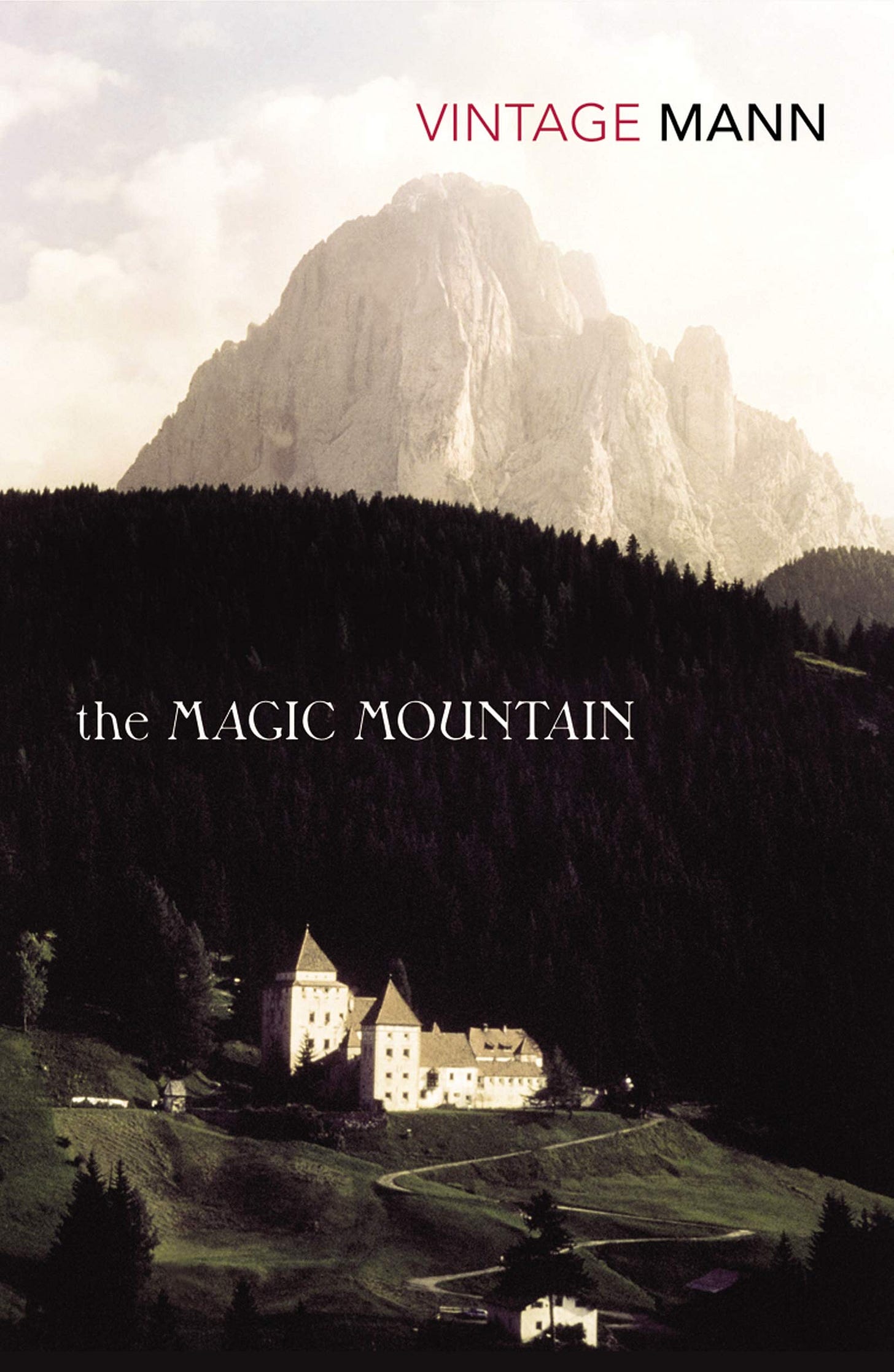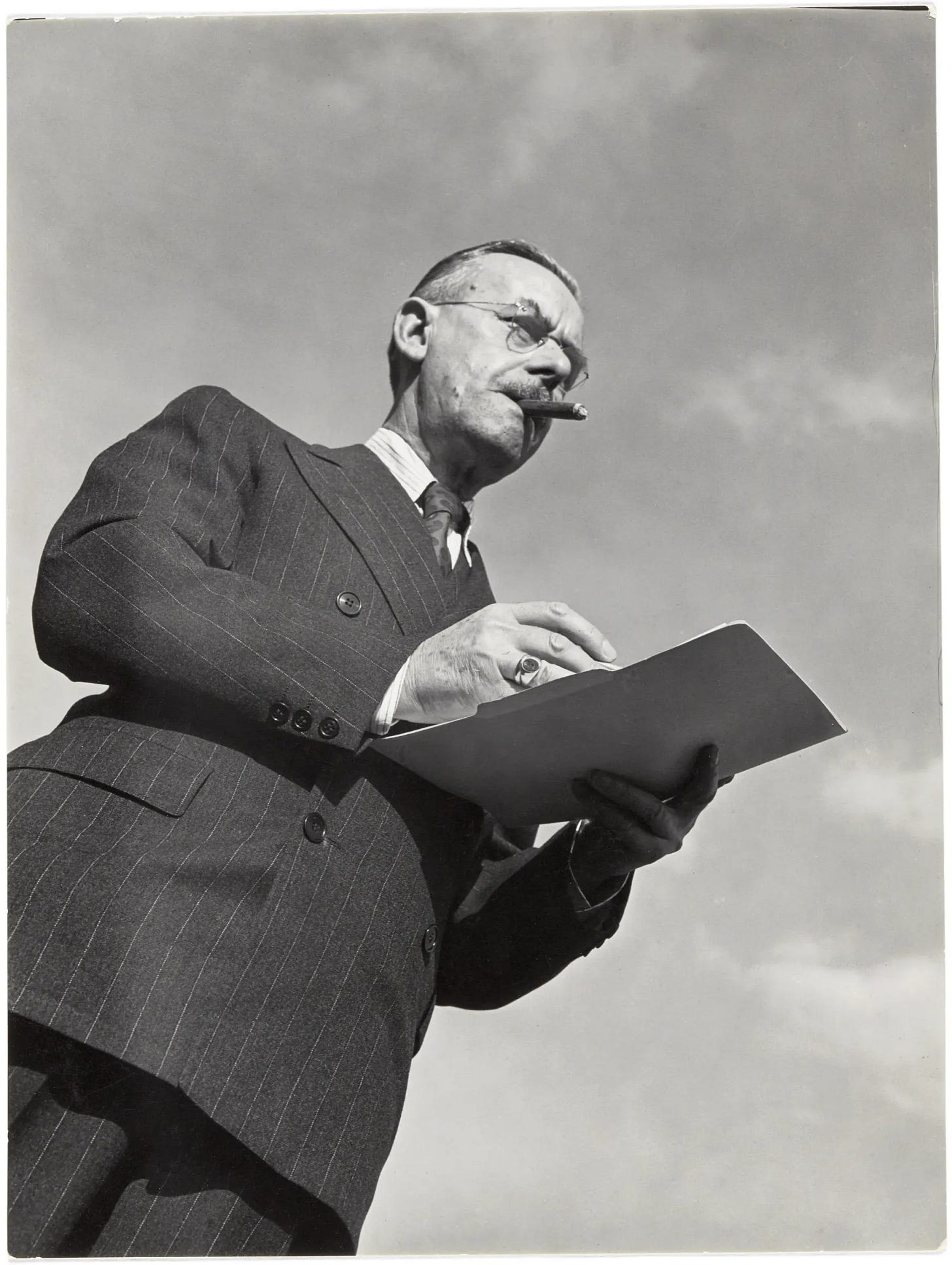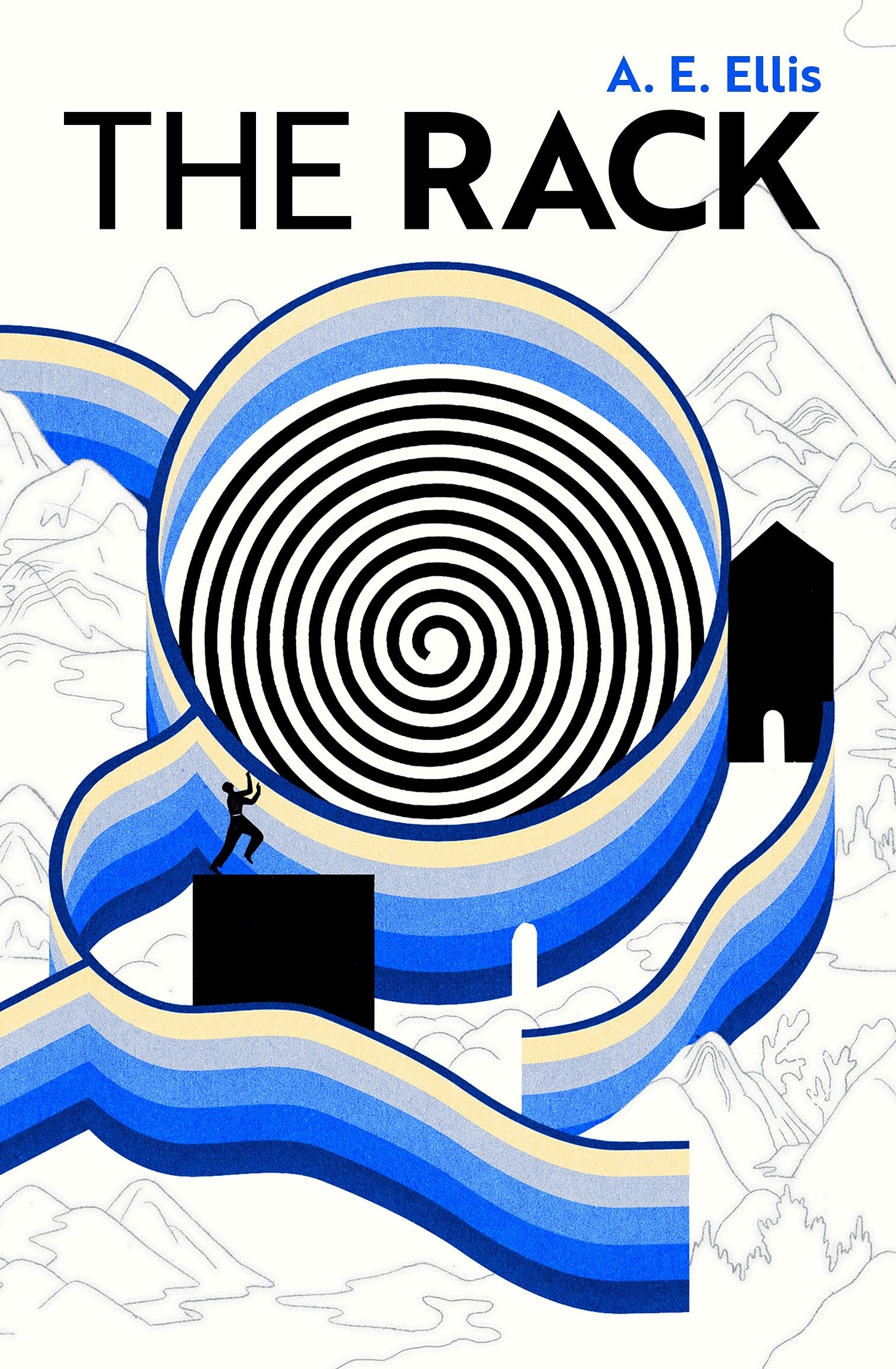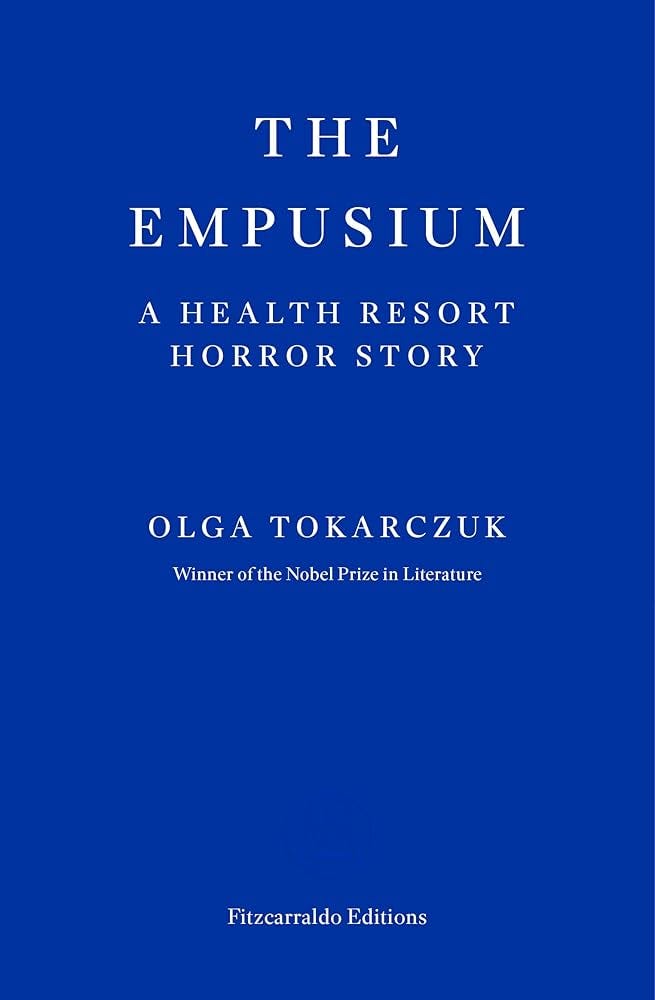The Magic Mountain
by Thomas Mann
The Magic Mountain by Thomas Mann was first published 100 years ago this month. We discussed Mann recently when we finished Goethe’s The Sorrows of Young Werther. He is generally considered the greatest German writer of the twentieth century and The Magic Mountain is his masterpiece.
Mann was born into a dynasty of prosperous Baltic merchants, but his father, the head of the ancestral firm, died when Mann was still a teenager and the firm was liquidated. Mann’s Brazilian mother then moved the family south to Munich.
Mann found work in an insurance office but, inspired by his older brother Heinrich, he tried his hand at writing and went on to produce a series of masterful novels, which he called the ‘fragments of a great confession’. He was awarded the Nobel Prize for Literature in 1929.
In 1933, when Hitler came to power, Mann moved his own family to Switzerland, and then, after his German citizenship was revoked, to the USA, where he recorded monthly anti-fascist dispatches which were broadcast to Germany by the BBC.
He is ‘one of the great German writers’, wrote Malcolm Bradbury, ‘the spokesman for a modern humanism’.

In 1912, Mann had visited a sanatorium in the Swiss Alps with his wife. The experience inspired his masterpiece, The Magic Mountain, which was first published in 1924. In this ‘dialectic novel’, young Hans Castorp comes to a Swiss sanatorium for three weeks, to visit his ailing cousin, and ends up staying for seven years.
Removed from mundane affairs, the eccentric patients become a rarefied microcosm of Europe’s intellectual malaise before the First World War. The enigmatic narrative incorporates myths, fairy tales and magic.
It is ‘a masterwork, unlike any other’, said A. S. Byatt, ‘a delight, comic and profound, a new form of language, a new way of seeing’.
Alternatively, if you’re looking for a more recent sanatorium novel, you might try The Rack by A. E. Ellis. This novel follows Paul Davenant, who is treated for tuberculosis in in an Alpine health resort. He endures depression, claustrophobia, bad food, uncaring doctors and excruciating therapy.
‘There are certain books which we call great for want of a better term,’ wrote Graham Greene, ‘that rise like monuments above the cemeteries of literature: Clarissa Harlowe, Great Expectations, Ulysses. The Rack, to my mind, is of this company.’
A. E. Ellis was the pen name of Derek Lindsay. He was born in 1920 and orphaned at the age of three. He was raised by an aunt, fought in the Second World War and attended Oxford University, before being diagnosed with tuberculosis and confined to a sanatorium in the French Alps himself, where he underwent an interminably slow cure.
The Rack, his only novel, was first published in 1958. Cyril Connolly called him ‘a Proust, a Leopardi of the sanatorium . . . an English Camus steeped, Englishwise, in Flaubert’.
And finally, a third option is to turn to another Nobel Prizewinner, Olga Tokarczuk, whose very recent novel The Empusium (2022) revisits and reimagines familiar Thomas Mann territory. Her British and US publishers, Fitzcarraldo and Riverhead, published the English translation six weeks ago. Fitzcarraldo describe the book like this:
In September 1913, a young Pole suffering from tuberculosis arrives at Wilhelm Opitz’s Guesthouse for Gentlemen, a health resort in the Silesian mountains. Every evening the residents gather to imbibe the hallucinogenic local liqueur and debate the great issues of the day: monarchy or democracy? Do devils exist? Are women born inferior? War or peace? Meanwhile, disturbing things are happening in the guesthouse and the surrounding hills. Someone – or something – seems to be watching, attempting to infiltrate this cloistered world. Little does the newcomer realize, as he tries to unravel both the truths within himself and the mystery of the sinister forces beyond, that they have already chosen their next target.
‘Despite the large (if mischievous) debt to The Magic Mountain,’ wrote Claire Lowdon in the Times Literary Supplement, ‘Tokarczuk makes this novel all her own with her idiosyncratic blend of registers and genres. She is both a collagist and a doodler, a freewheeling improvisator taking her narrative line for a gloriously erratic walk. . . . All the various unlikely strands come together in the closing chapters. The eerily majestic finale is haunting, cathartic and gleeful – a zany confection that could only have come from this unpredictable, unique writer.’
Buy a copy of The Magic Mountain, The Rack or The Empusium through Bookshop.org and Read the Classics will earn a commission from your purchase. Thank you in advance for your support!








There is also The Magician, by Colm Toibin, about Thomas Mann's life, which I think is marvellous.
I’ve managed half way about three times, I really do need to finish this book. It’s one that always made me want to read it wrapped up in a blanket and sitting outside in mid-winter, preferably with snow on the ground. This might be why I’ve never finished it.